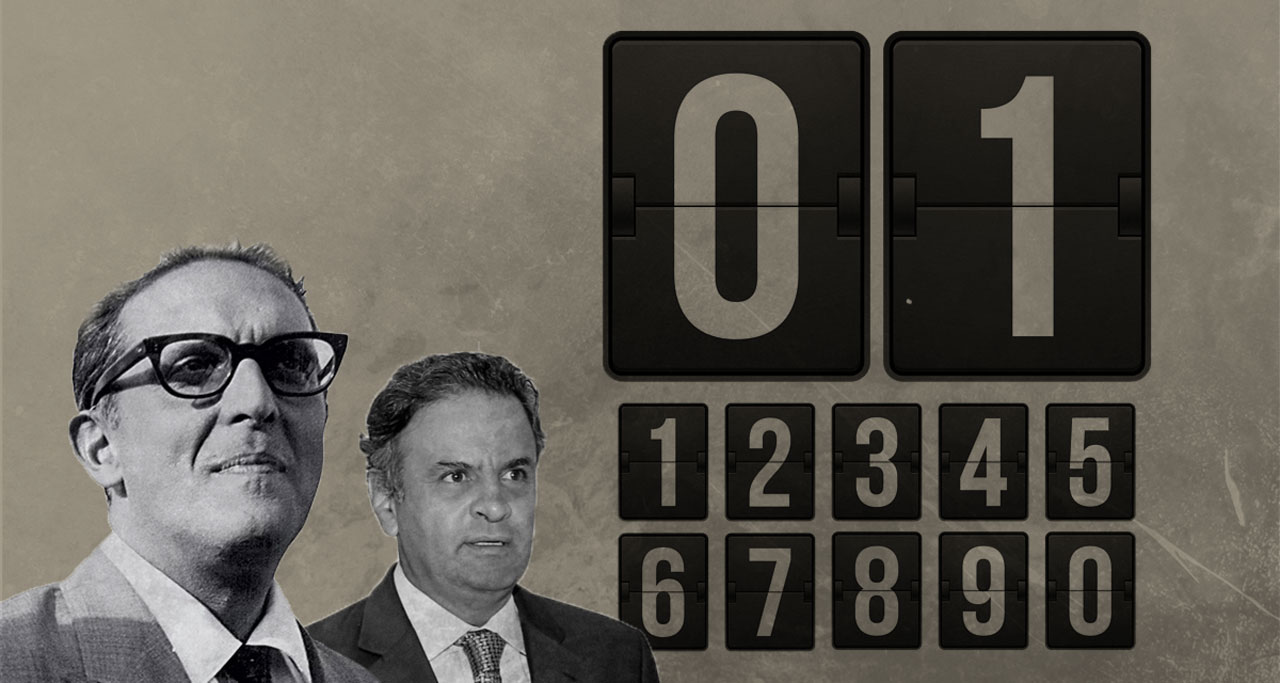by Rafael R. Ioris.
One of the most important innovations in modern thinking is the notion of linear history. Breaking with the logic present in the greco-roman and medieval conception of time, the Enlightenment insists that history is guided by a series of transformations that unravel like an arrow across time.
With this, we abandoned a more intuitive vision of circularity, such as that present in nature, and began to accept the idea of an inescapable, linear progression. In an ironic and possibly tragic manner, the recent events unfolding in our country seem to follow more classical logic than modern, as it appears that we are trapped in a political cycle that we have to painfully repeat every few decades.
It is nearly impossible to not see strong reverberations from 1964 in our current crisis, which began around 2014. It was then when, right after the second round of the presidential elections, opposition candidate Aécio Neves refused to accept his electoral defeat – despite having agreed to participate in the process – in a gesture that was clearly Coup-related. His behavior reminds one of Coup architect Carlos Lacerda’s words on Getulio Vargas, “he can’t be a candidate. If he is, he can’t be elected. If elected, he can’t take office. If he takes office, he can’t govern.”
Although Lacerda said this in the 1950s, the expression distinctly exemplifies the logic that went on to guide the self-proclaimed Brazilian liberals, who supported the military intervention in 1964. In the same manner as his nominally liberal predecessors, Aécio Neves refused to accept the results of a democratic process, boycotted the government in Congress, called his predominantly middle class, urban electorate to the streets to demand the President’s resignation, and pushed for her removal through an impeachment process.
The events are well known and therefore it is not necessary to go into detail about them here. It is enough to emphasize the central characteristic, which was the refusal to accept the majority of the population’s will expressed through means of the popular vote. It echoed similar attitudes that were adopted when, during the first and very important process of formal democracy deepening took place in our country (from 1945-1964), our liberals (who are, in fact, conservative and elitist), only accepted the population’s democratic expression when it served their interests.
Both Lacerda and Aécio Neves refused to accept that the governments of their times, whether Vargas in 1954, Goulart in the early 1960s, or Rousseff more recently, could be in synch with the wishes of the majority of the population. We remember that although his government was immersed in one of the main economic and political crisis in the history of the nation, Goulart continued to be an extremely popular president, having received three times more votes in the plebiscite which returned the nation to presidentialism in 1963 than he did for Vice-President in 1960. In the same manner, his party, the PTB, nearly doubled its presence in Congress in the 1962 elections expressing the support for his reforms by growing segments of the population.
The fear of and refusal to accept democratic rule is, therefore, a recurrent tradition among Brazilian liberals, even if the ways that they manifest this vary, ranging from military operations to promoting misinformation, rumors and hysteria through the corporate media. This occurred as much in the early 1960s, as demonstrated by Lacerda’s actions, as in the end of the 1980s with the media terror campaign against Lula, and more recently with the widespread media red-baiting of the PT party.
One great recent innovation is the use of the eminently liberal formal apparatus of the rule of law to impede the proper functioning of democracy, which also has a classical liberal nature. The clearest manifestation of this process has been the subversion of accusatory logic to abandon the presumption of innocent until proven guilty in cases of alleged involvement in illicit acts.
This clearly revisionist and inverted rationale of the humanistic logic rooted in modern liberal thinking, is now paradoxically exercised by agents who act in defense of the liberal state and apply it to remove widely popular politicians, like Lula, from the Democratic game. This subverts the essence of the liberal tradition in favor of the oligarchic interests that are engrained in these so-called tropical liberals.
Classical liberalism presupposes freedom and equal opportunity for participation in the economic market and political arena. Contrivances that impede this democratic exercise, even if cloaked in a formal legal facade or emotional self righteousness, strongly contradict the logic of modern liberalism. Since a great part of our political trajectory is more circular than linear, shouldn’t our liberals admit, once and for all, who they really are? Are they liberals or merely anti-democratic, pre-modern defenders of the law of the strongest?
This article originally appeared in the Brazilian magazine Cult, and was translated and reprinted with their permission and permission from the author. It can be read in its original form here.
Rafael Ioris is Associate Professor or Latin American History at the University of Denver, and author of Transforming Brazil: A History of National Development in the Postwar Era (Routledge, 2014).
[qpp]

